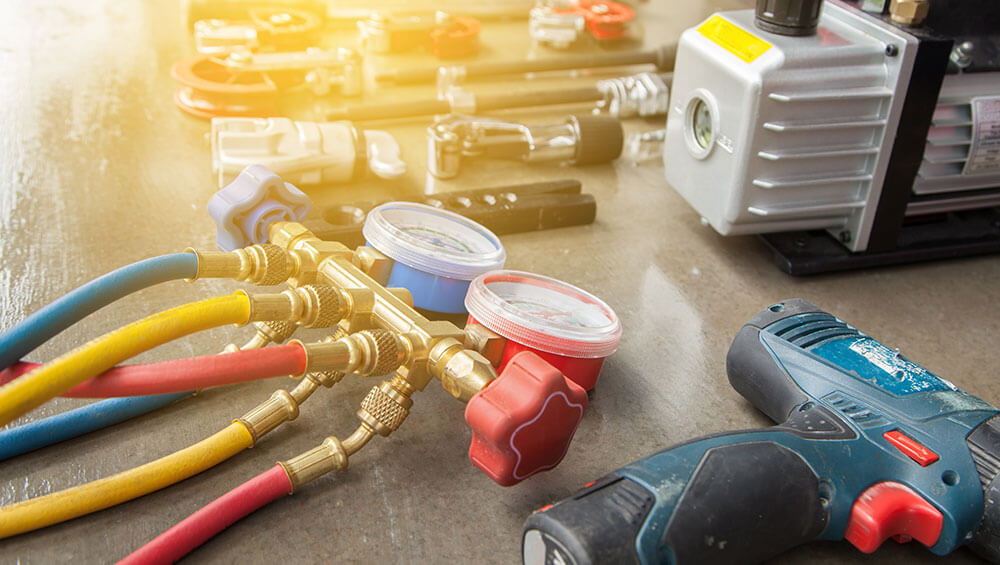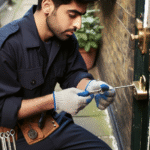HVAC can be complicated. It engages plumbing, electricity, a fair share of the building structure, and about a ton of tedious planning. Once the system is in place and running, it will eventually deteriorate in condition as years go by.
And if you have got some amount of experience using an HVAC system, you would know that things can get pretty gamy if anything at all goes wrong. All the more, there can be serious faults in the HVAC draining power that are extremely difficult to notice. This is why you need to hire HVAC specialists like Gibbon Heating & Air Conditioning to do preventive and maintenance work regularly and unfalteringly.
Check out our checklist below for you to make sure that your HVAC preventive maintenance runthrough is spotless.
1. Indoor Air Quality (IAQ) directly impacts your health and here’s what a service session should do for it:
- Air filters should be replaced on time since they can collect dust, pet hair, mold, harmful other microbes, pollen, cobweb, and other debris and circulate them back directly into your lungs if the filters are not changed duly. The change could be arranged as late as 90 days, but in case it’s summer or fall, someone has an allergy, or your pet sheds too much, 30 days is the ideal time for the next change.
- Air vents and ducts should be inspected for faults and blockages, leaving no inch of their length to ensure maximum efficiency of the system as a whole.
- The refrigerant levels, quality, and lines should be inspected and catered to, if needed. The coolant should be in adequate quantities and the lines should be well-insulated.
- All the electrical elements of the system should be given a thorough check under a complete checklist of its own. No element should be excluded.
- The fans, exhausts, blower belt, condenser coils, and the expansion valve and coil should be checked for wear, tension, and alignment, and cleaned if needed.
- The air-conditioning checks should be done more frequently in the summers and spring months than in the colder or wetter months.

2. When the colder seasons are on, the furnace will need more attention than ever, for comfort and better health. Here’s what an HVAC service should check:
- Gas leaks and carbon monoxide are the two most notorious dangers with a furnace. Gas furnaces will need frequent checks for gas leaks. Any problems within the furnace system could develop toxic gas. Leakage checks should cover all such issues.
- The burners of the furnace should be in good condition and the pores should be clean for the best fuel efficiency. Consider your gas stove burners – they burn for less than 4 hours a day, and still need to be cleaned. The furnace burners are literally on fire up to 24 hours a day and could develop debris both from the fuel and the vents.
- The flue system, blower belt, filters, and other important parts should be in perfect condition or replaced. The connections and parts should be inspected for wear, tension, and relative alignment, while moving parts should be well-lubricated.
- Adjust the combustion in accordance with the expected weather, and learn to make emergency adjustments yourselves.
- Thoroughly check and adjust both the automatic controls and safety shut-off.
- Cut the water supplied to the humidifier of your furnace in summer.
3. The humidifier and electronic air purifier can be crucial for people with asthma and sinus issues. This is why:

- All the parts, cells, filters, drain lines, evaporator pad, etc. of the humidifier and air cleaner should be cleaned thoroughly. They should also be replaced in due time to prevent the system from backfiring allergies.
- The electrical conditions should be in perfect condition to prevent electrical hazards and to keep the system working 24/7 if and when required.
- The settings on the controls and damper of the humidifier should be in perfect working condition.
4. Other general guidelines:
- All moving parts should be properly lubricated.
- All wires, belts, pulleys, and wearable parts should be examined and replaced if necessary, or duly.
- All fans and motors should be inspected well.
- There should be no leaks, waterlogs, or clogs in general.
- All electrical systems should be checked for perfect functioning.
- The automatic systems should be checked, especially for automated emergency responses. If there should be any manual intervention, the service should inform the customer.
- All filters should be replaced in due time, and with respect to the season, regardless of how dirty or clean, they are.
Long story short, there’s no denying that having an HVAC preventive maintenance checklist for residential homes is important nowadays. We hope this checklist will help you in keeping your HVAC system in good condition.






